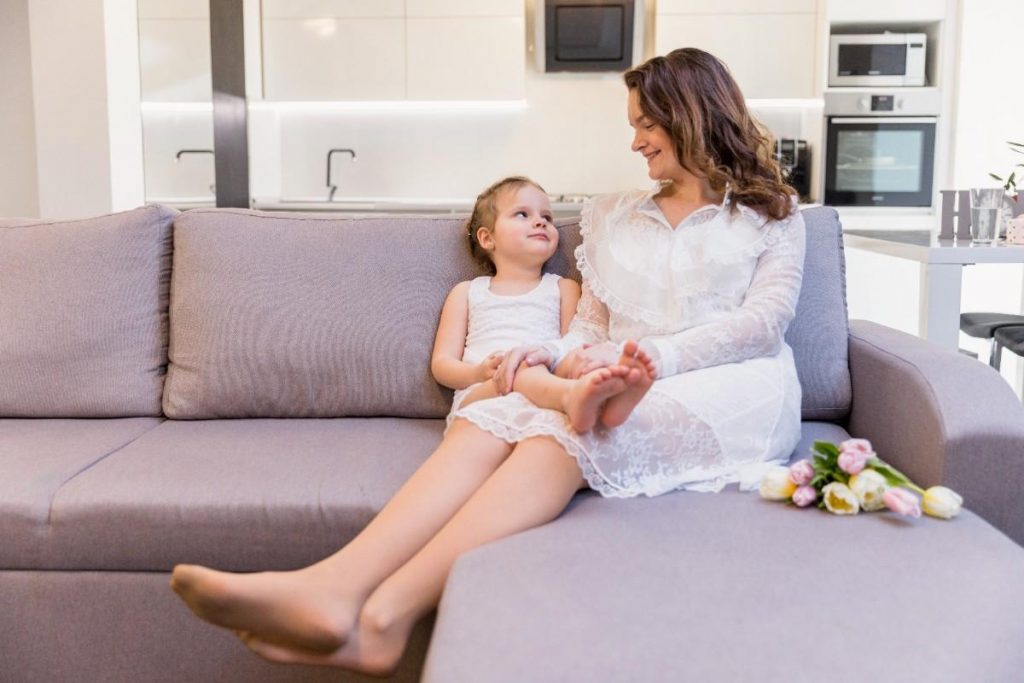
Introduction
Just like adults, children and young people occasionally suffer stress and anxiety.
But if your child’s worry starts to significantly affect their wellbeing, then they could need help.
What causes anxiety in kids?
Children may experience anxiety due to a variety of circumstances depending on their age. Most of these fears are normal parts of growing up.
Between the ages of six months and three years, separation anxiety in young children is a common occurrence. They may cry and grow dependent if they were taken away from their parents or other caretakers. When a kid reaches the age of two or three, this period of growth should come to an end.
Phobias or specific worries often begin to develop in preschoolers. Phobias related to animals, insects, storms, heights, water, blood, and the dark are widespread in early children. These fears usually go away on their own over time.
Anxiety may strike a child at various times during their lifetime. For example, a lot of children are anxious before tests or when they start a new school. Help may be beneficial for children who suffer from social anxiety.
When does anxiety become an issue for kids?
Anxiety in children becomes a problem when it starts to affect their day-to-day activities.
Exam anxiety is a common feeling among students, but for others it could get so bad that it keeps them from showing up to school that morning.
Children’s mental and emotional well-being can be severely impacted by this sort of intense concern, which can also damage their self-esteem and confidence. They could withdraw and take drastic steps to avoid things or situations that make them anxious.
When does anxiety become an issue for kids?
Anxiety in children becomes a problem when it starts to affect their day-to-day activities.
Exam anxiety is a common feeling among students, but for others it could get so bad that it keeps them from showing up to school that morning.
Children’s mental and emotional well-being can be severely impacted by this sort of intense concern, which can also damage their self-esteem and confidence. They could withdraw and take drastic steps to avoid things or situations that make them anxious.
What symptoms might a youngster exhibit of anxiety?
When they are nervous, young children often have difficulty understanding or expressing their emotions. It is possible to see that they:
- Become anxious, emotional, or clingy;
- have trouble falling asleep;
- wake up frequently during the night;
- start peeing on the bed;
- have nightmares
Children older than ten years old:
• become irritable on occasion;
• lack the will to try new things or seem incapable of handling simple, everyday challenges;
• struggle to focus;
• have trouble eating or sleeping;
• have a lot of negative thoughts or consistently think that terrible things will happen;
• start avoiding regular activities like going to school, hanging out with friends, or using public spaces.
Why does my kid feel nervous?
Some children experience anxiety and worry more frequently than others.
When relocating to a new school or experiencing change in general, children often deal with anxiety.
Children who have gone through a stressful or unpleasant event, like a home fire or car accident, may develop anxiety.
Youngsters who see arguments and conflicts in the home may also feel uneasy and anxious.
Teenagers are more likely than those in other age groups to suffer from social anxiety, which makes them avoid social settings or look for methods to get away from them.
How to support a youngster who is nervous
Parents and other caregivers can help a child experiencing anxiety by doing certain actions.
It’s important to talk to your child about any fears or worries they might be experiencing. Comfort them and show that you are aware of how they are feeling.
If your child is old enough, it may be beneficial to explain to them what anxiety is and how it physically affects our bodies. It might be helpful to think about concern as a wave that rises and then falls.
It’s important to talk to your child about their concerns and anxieties as well as to support them in discovering the answers.
For example, it’s reasonable to want to suggest to your child that if they’re afraid of sleepovers, they shouldn’t go. However, this may suggest that your child thinks acting on their fear would keep them from behaving.
It’s better to recognize their concern and provide useful advice so they can go to the sleepover prepared.
Teaching children to identify the signs of anxiety in themselves, helping them to manage their concern, and asking for help when needed are other techniques for lowering anxiety in children.
Children of all ages find comfort in routines, so try to keep your daily routines as constant as possible.
When a big event is coming up, like changing houses, let your youngster know what to expect and why. Try not to get too worried or defensive of yourself. Together with your kid, practice some simple relaxation methods like counting to three and taking three calm, deep breaths. Find books or movies that will assist your child in comprehending their emotions if they are experiencing anxiety as a result of upsetting experiences such as a separation or loss.
Diverting young children can be beneficial. If kids are anxious to get to the nursery, engage in games throughout the trip there, such seeing who can find the reddest cars.
Urge your child to “post”—that is, to write or draw—their anxieties inside the box. After that, you may look through the box together at the end of the day or week.
When to contact a Child psychologist
If your child continues to have severe anxiety that interferes with their everyday activities, it is best to get help. TalktoAngel’s child psychologists assist in eradicating all of your child’s anxiety symptoms. They provide individualized online counseling based on the needs of the kid, which aids in the child’s entire development.